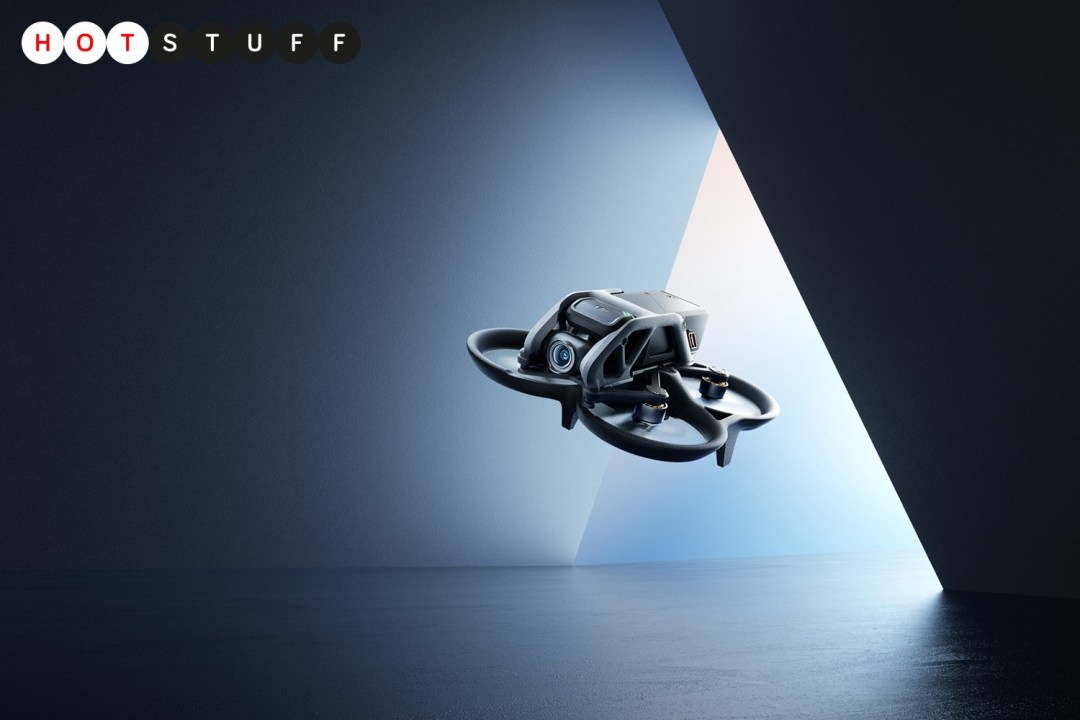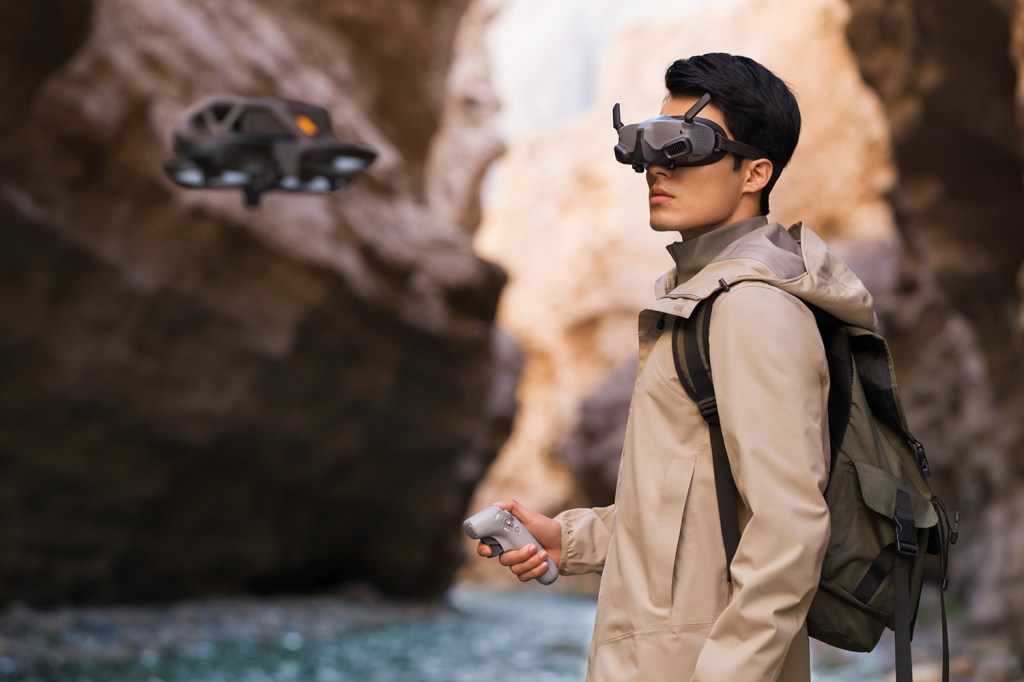DJI Avata is the FPV drone that won’t scare off beginners
Zoom with a view

The DJI FPV is an impressive drone that puts the pilot in an imaginary cockpit thanks to its goggles: when flying it, you get a first-person view from the drone’s camera. Problem is, the FPV is fast, large and much easier to crash than DJI’s more sedate Mavic and Mini models, making it much more frightening to fly for amateur (and even fairly experienced) pilots.
Step forward the new DJI Avata, aimed squarely at those same greenhorn fliers. It’s smaller than the FPV and weighs just 410g, which makes it easier to fly (and less likely to destroy your neighbour’s greenhouse) and zip through narrow gaps. It also has built-in propeller guards to prevent damage from minor collisions, a new ‘turtle’ that flips it back upright if it crashes and lands upside down, and two sensing systems to aid stable hovering and identify potentially dangerous landing sites such as bodies of water. All of this goes together to make it a lot more accessible than previous FPV drones.
The on-board camera doesn’t just offer that FPV live feed – it can also capture 4K/60p videos and 48MP still photos with its 1/1.7in CMOS sensor and f/2.8 aperture lens, which has an ultra-wide viewing angle of up to 155º to help it capture more of its surroundings.
Slow motion footage can be captured at up to 120fps for smooth playback, which feels likely to become a popular choice for stunt-minded pilots who want to shoot their Avata through tiny gaps or use it to film extreme sports and the like, but does require a slight resolution reduction to 2.7K. Two stabilisation technologies can be engaged: RockSteady to reduce picture shake and HorizonSteady to keep your footage lined up with the horizon. The 20GB of internal storage can be boosted further with a Micro SD card.

The Avata can be purchased now, either solo (£499) or with the new DJI Goggles 2 and DJI Motion Controller for £989. The OLED Goggles 2 offer a 1080p low-latency image, viewed through adjustable diopters (for glasses wearers) and with a range of 2km in Europe (10km elsewhere). Time to take to the skies and see what’s up there.
